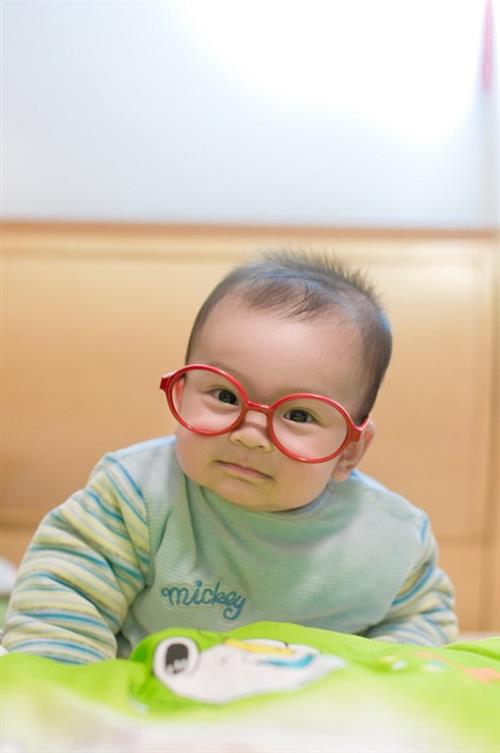Due to incomplete development of organs and tissues, infants and young children have weaker resistance, and their diet should obviously differ from those of adults. Ingestion of certain foods at this stage may cause allergies or other adverse consequences. Although some foods do not cause acute poisoning or adverse reactions after ingestion, they may cause chronic adverse reactions or affect the baby's growth and development. They also need the attention of parents.

Here is a list of foods that some babies can’t eat, should not eat, and eat less, for reference. Parents should also combine their children's specific circumstances, pay attention to observe foods that are prone to allergies and adverse reactions, and consult doctors in a timely manner.
Inedible food (risk index: five stars)
â—† honey â—†
Reasons: According to reports in the United Kingdom, in the past 25 years, about 40 cases of infant deaths caused by botulism have been associated with the consumption of honey. In these cases, the most serious infants were less than 6 months old.
Note: Do not add honey to your baby's milk powder or food less than 1 year old to avoid being infected by deadly bacteria.
â—† preserved food â—†
Causes: The salt content of salted products (salted fish, bacon, pickles, etc.) is too high. High-salt diets are prone to induce hypertension; the pickled products contain a large amount of nitrite, and it is aflatoxin and phenylpropanol. Three generally recognized cancer substances in the world.
Note: According to research data, children who start eating pickled products during their childhood are much more likely to develop cancer than adults.
â—† dumplings â—†
Reason: Due to the stickiness of sticky rice, children may stick to the esophagus and block the respiratory tract; children from 1 to 2 years old cannot chew the peanuts in the glutinous rice dumplings, the digestive function of the children is weak, and the swallowing reflexes are not yet well developed, affecting the nutrients. absorb.
Note: Infants younger than 3 years old are not suitable for glutinous rice balls. Children suffering from respiratory diseases should eat less dumplings to prevent their condition from worsening.
â—† High-heat "junk food" â—†
Reasons: Eating high-calorie “junk foods†can easily lead to obesity, various complications, and harmful to human health.
Note: During infants and toddlers, their brains and nervous system are developing and they need full nutrition to grow healthily. Eating "junk foods" can lead to obesity and lead to imbalances in the intake of other nutrients and nutritional deficiencies.
â—†chocolate â—†
Reason: Chocolate is a kind of high-calorie food, but its low protein content, high fat content, the proportion of nutrients does not meet the needs of children's growth and development; and eat too much chocolate before meals are prone to satiety, and thus affect appetite , so that the normal life patterns and eating habits have been disrupted, affecting the child's physical health; In addition chocolate contains substances that make the nervous system excited, make infants and young children not easy to sleep and crying uneasy; frequent eating chocolate can also occur tooth decay, Increased intestinal gas and abdominal pain.
Note: Children under 3 should not eat chocolate.
â—† Tea â—†
The reason: Tea contains a large amount of tannic acid, which interferes with the human body's absorption of protein, minerals and calcium, zinc, iron and other minerals in foods, resulting in the lack of protein and minerals in infants and young children and affecting their normal growth and development; The caffeine in is a strong stimulant and may induce ADHD.
Note: Baby less than 3 years old should not drink tea.
â—† Soybean â—†
Cause: Soybean itself contains a phytoestrogen. If intake is large, there will be side effects similar to those caused by excessive human estrogen intake. In addition, premature intake of legumes may cause infant allergies. Cause allergies such as diarrhea and dermatitis in infants.
Note: Infants within 1-2 years of age should avoid soy food as much as possible.
â—† fresh milk â—†
Reason: The protein composition of fresh milk is mainly globulin, and only 20% of whey protein; while the protein in breast milk is mainly whey protein, and its proportion is as high as 60%. Moreover, other components and levels in milk are also different from those in breast milk. For example, if the mineral content in milk is high, it will increase the infant's kidney load. Milk is also a poor iron food and long-term intake may cause iron deficiency in infants.
Note: Infants and young children should not be fed fresh milk. If breast milk cannot be fed, formula milk based on breast milk should be used.
Experts advise: Other foods that are likely to cause allergies, such as peanut butter, fish, shellfish, etc., it is best to be over the age of 1 and confirm that they will not be allergic to eat these foods. In addition, some foods that are prone to clogging baby's throat, such as nuts, certain nuclear fruits such as litchi and longan, are also avoided.
Coffee Shell,Coffee Husk,Coffee Bean Husk,Coffee Bean Shell
YUNNAN H.C.IMPORT & EXPORT CORP , https://www.hccoffeebean.com